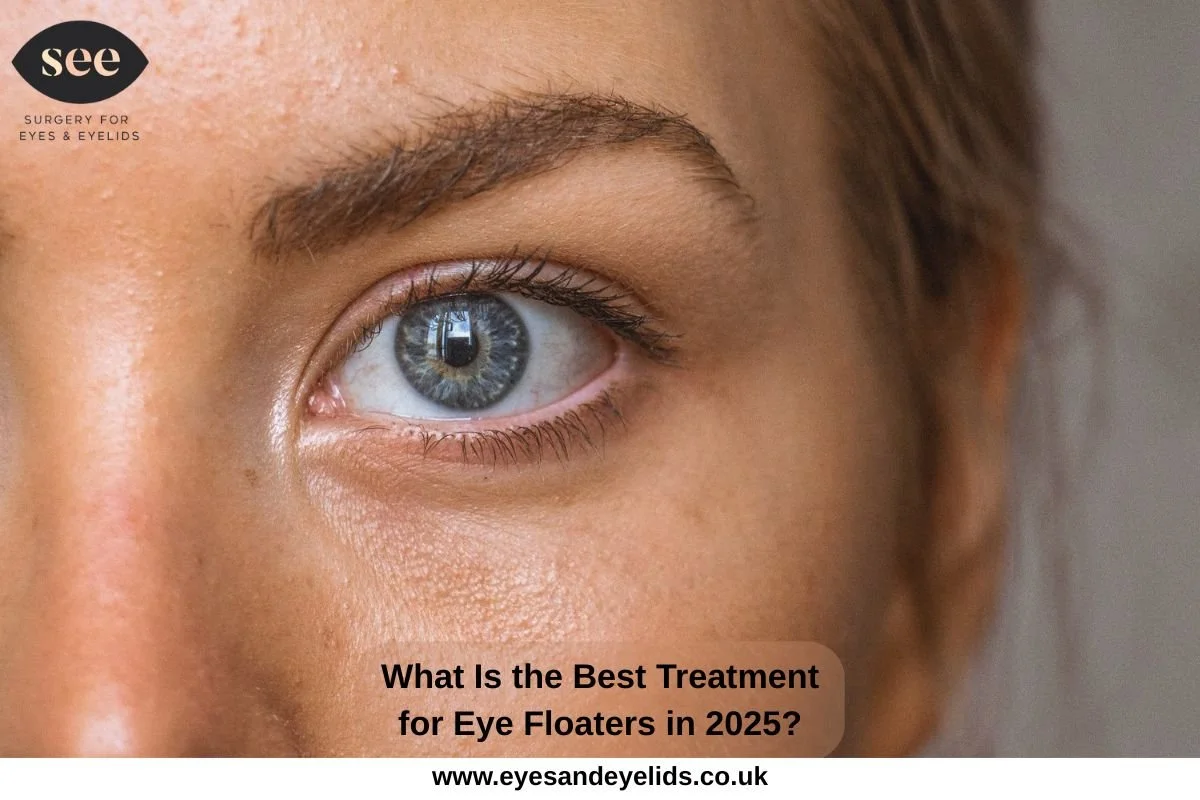What Is the Best Treatment for Eye Floaters in 2025?
Eye floaters are one of the most common problems with vision that eye doctors see these days. Millions of people around the world, especially those over 50, see these little dots, threads, or cobweb-like structures that move across their field of vision. If you're looking for the best way to treat eye floaters in 2025, you'll be happy to know that contemporary medicine has a number of good solutions that work for people with varied levels of severity and needs.
Understanding Eye Floaters
Before looking into treatment possibilities, it's important to know what floaters are. These vision problems happen when small groups of gel or cells grow inside the vitreous, which is the clear, gel-like liquid that fills the eye. As we get older, the vitreous becomes more watery, which makes these particles throw shadows on your retina and make them look like floaters.
Most floaters are not dangerous, but when they get too many or are too obvious, they can have a big effect on quality of life. The good news is that 2025 has gotten us closer than ever to medicines that are safer and work better.
The Latest Treatment Options for Eye Floaters
1. Laser Vitreolysis - The Leading Non-Invasive Option
Laser treatment has emerged as a promising option for those seeking to eliminate eye floaters, using a laser to break up the floaters into smaller, less noticeable pieces. This procedure, known as YAG laser vitreolysis, has gained significant traction as the best treatment for eye floaters for many patients due to its minimally invasive nature.
The procedure involves using a specialized laser to target and fragment larger floaters, making them less visible or completely eliminating them. The treatment is non-invasive and usually takes just a few minutes, with the specialized laser targeting and breaking up the floaters, significantly reducing or eliminating their appearance.
Benefits of laser vitreolysis include:
Outpatient procedure with minimal downtime
No incisions or sutures required
Lower risk profile compared to surgical options
Immediate results in many cases
2. Micro-Incision Vitrectomy - The Gold Standard for Severe Cases
For patients with severe floaters that significantly impact vision, small-gauge vitrectomy has become the treatment of choice because it has made it possible to decrease the risks associated with vitrectomies. This advanced surgical technique involves removing the vitreous gel along with the floaters through tiny incisions.
Micro-incision sutureless surgery, called vitrectomy (which involves removing the vitreous fluid behind the lens of the eye) for patients with floaters, shows remarkable results. Modern vitrectomy techniques use 23-gauge or 25-gauge instruments, making the procedure less invasive than traditional methods.
3. Emerging Nanoparticle Therapy
One of the most exciting developments in floater treatment is the emergence of nanoparticle-based therapy. A safer and less invasive nanoparticle-based therapy offers hope for people with floaters to finally get their vision and quality of life back. This cutting-edge approach uses targeted nanoparticles to break down floaters at a molecular level, potentially revolutionizing treatment in the coming years.
When to Seek Professional Help
While many floaters are benign, it's crucial to consult with an eye doctor for blepharitis or other eye conditions if you experience:
Sudden increase in floaters
Flashes of light
Loss of peripheral vision
Curtain-like shadow across your vision
These symptoms could indicate serious conditions like retinal detachment that require immediate attention.
Choosing the Right Eye Care Professional
Finding the right specialist is crucial for optimal outcomes. Whether you're looking for a blepharitis specialist near me or seeking comprehensive eye care, consider these factors:
Expertise and Experience: Look for ophthalmologists who specialize in vitreoretinal surgery and have extensive experience with floater treatments.
Advanced Technology: The best eye care centers invest in cutting-edge equipment for both diagnosis and treatment.
Comprehensive Services: Many patients benefit from centers that offer multiple services, from eye surgery London facilities to non surgical blepharoplasty London options, as eye conditions often interconnect.
Specialized Care: If you have concurrent conditions like macular degeneration, ensure your provider offers comprehensive macular degeneration treatment alongside floater management.
The Future of Floater Treatment
The landscape of floater treatment continues to evolve rapidly. Researchers are exploring new laser technologies, improved surgical techniques, and novel pharmaceutical approaches. The integration of artificial intelligence in diagnosis and treatment planning is also showing promise for more personalized care.
Making the Right Choice
The best treatment for eye floaters depends on several factors including floater size, location, severity of symptoms, and individual patient characteristics. While laser vitreolysis offers an excellent first-line treatment for many patients, severe cases may require surgical intervention.
The key is working with an experienced ophthalmologist who can assess your specific situation and recommend the most appropriate treatment approach. With the advances in 2025, patients have more options than ever to regain clear, comfortable vision and improve their quality of life.
Don't let eye floaters hold you back from enjoying life's visual experiences. Consult with a qualified eye care professional today to explore which treatment option might be best for your unique situation.


